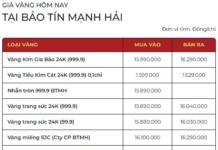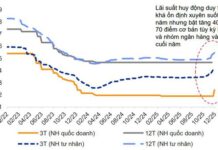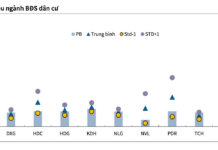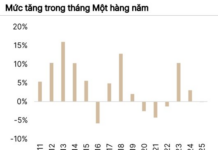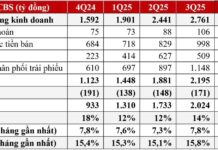The amended Land Law draft has attracted particular attention with significant changes related to land price regulations – a core content in Articles 158 to 162 of the 2024 Land Law.
Notably, two key points are the adjustment of land pricing principles towards reducing the role of market factors and proposing to abolish the specific land price mechanism. These adjustments raise concerns about land administration and management orientations in the coming time.
Why remove the regulation on land pricing according to market principles?
Specifically, the amended Land Law draft abolishes the regulation on land pricing according to market principles. Requirements for publicity, transparency, objectivity, integrity, and independence are no longer recognized. The harmonization of interests between the State, investors, and land users is replaced by the compatibility between state management requirements and local practical situations.
With the four principles in the draft showing the dominance of administrative factors in land pricing, are we equating the principle of land pricing with the principle of state-determined land prices?
The state determines land prices in the primary market and decides on land prices for compensation when the state recovers land, which has been established since the regulations on land prices in the 1993 Land Law.
We need to note that these principles apply generally to land pricing activities, not just when the state determines land prices. At the same time, building land pricing principles ensures that they truly reflect the value of the land plot/land area, the inherent characteristics of land prices, and control the imposition of subjective will in land pricing.
Therefore, the principles in the draft need to be carefully considered to ensure the goal of the principles and contribute to improving professionalism in land pricing.
Imposing subjective will and ignoring market factors will not reflect the nature and objectivity of land pricing. The core issue is that we must improve the mechanism for managing and effectively regulating the market, not evading or eliminating market influences on the land pricing process.

The amended Land Law draft is attracting special attention with significant changes related to land price regulations. Photo: Son Nhung |
Replacing the specific land price mechanism
The next significant change is that the draft proposes to replace the specific land price mechanism with the use of a land price table combined with adjustment coefficients. Accordingly, when the state recovers land, the land price for compensation will be based on the adjusted land price table instead of determining the price for each case as before.
Using a land price table with adjustment coefficients will bring advantages and speed when applying land prices in the current context, reducing the risk of violations and prolonging the time for determining specific land prices. However, the use of specific land prices from the 2013 Land Law to the present has outstanding advantages such as high individuality for applicable cases, pricing based on market data at each determined time, and regulating the interests of related parties specifically in each case…
The difficulties and shortcomings in the past when determining specific land prices are that the pricing entity has not demonstrated professionalism, and land pricing consulting organizations have not operated effectively. Therefore, it is necessary to research and establish a model of an independent land pricing system as directed in Resolution No. 19-NQ/TW dated October 31, 2012.
We believe that it is necessary to identify the correct focus of the shortcomings, not just for convenience and difficulties, but also to ignore the scientific and professional nature of land pricing. The widespread application of the Land Price Table with adjustment coefficients is similar to the 2003 Land Law period, and at that time, the solution of specific land prices was born in the 2013 Land Law, which needs to be specifically evaluated whether or not the old shortcomings will reappear, is a step back in abolishing specific land prices.
Dr. Chau Hoang Than, Head of Administrative Law Department, Faculty of Law, Can Tho University
The Government Sets Primary Land Prices: A Step in the Right Direction
The government’s intervention in setting primary land prices is a strategic move to curb market volatility.
The Real Estate Renaissance: Unveiling a Transparent Future with the 2024 Land Law
As of August 1st, the Land Law, Housing Law, and the revised Law on Real Estate Business will come into force together, marking a new era for the real estate market. The market is set to undergo a significant transition towards enhanced transparency and efficiency in its operations. To shed light on this pivotal moment, a Vietnam News Agency reporter had an insightful discussion with Mr. Dao Trung Chinh, Director of the Department of Planning and Land Resources Development under the Ministry of Natural Resources and Environment.






